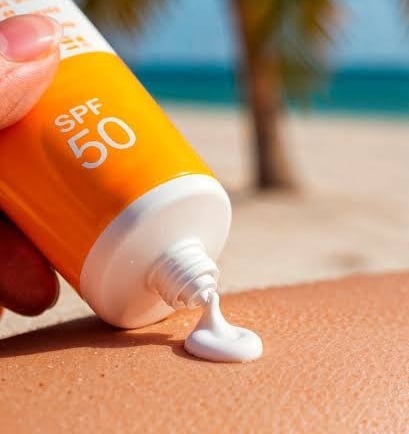Is Sunscreen Really Harmful?
Dr. R. P. S. Chouhan
8/14/20252 min read


Is Sunscreen Really Harmful?
Separating Myths from Facts
In recent years, sunscreen—once hailed as the holy grail of skin protection—has found itself under scrutiny.
Viral posts, influencer opinions, and scattered research findings have raised questions about whether sunscreen might do more harm than good. But is there any truth to this? Let’s break it down with science, not speculation.
Why Sunscreen is Essential
Ultraviolet (UV) radiation from the sun comes in two main types:
UVA rays: Penetrate deep into the skin, causing premature ageing and contributing to skin cancers.
UVB rays: Cause sunburn and directly damage DNA, leading to skin cancer.
Daily sunscreen use significantly reduces the risk of all these effects. Decades of dermatological research consistently show that regular SPF use is one of the most effective ways to prevent melanoma, squamous cell carcinoma, and photoageing.
Where the Concerns Come From
The debate often focuses on chemical (organic) sunscreen filters, especially ingredients like:
Oxybenzone
Octinoxate
Homosalate
Lab studies have suggested that in extremely high doses, these ingredients may have hormonal effects or contribute to coral reef bleaching. However:
The amounts used in human sunscreen are far below harmful levels.
Absorption into the bloodstream has been detected, but there is no evidence of actual harm at these concentrations.
The FDA, European Commission, and Australian TGA all allow these filters within regulated limits after rigorous safety evaluations.
Mineral Sunscreens: The Alternative
If chemical sunscreens make you uneasy, mineral (inorganic) sunscreens are a great choice. These use:
Zinc oxide
Titanium dioxide
They sit on top of the skin and physically block or scatter UV rays. They’re also reef-safe, non-irritating, and ideal for sensitive skin, although some may leave a white cast.
Environmental Considerations
Some coastal regions, like Hawaii, have banned certain sunscreen filters due to concerns about coral reefs. If you’re travelling to such places, look for reef-safe labels or mineral formulas to protect both your skin and the environment.
The Real Risk: Skipping Sunscreen
While debates over ingredients continue, the danger of unprotected sun exposure is certain:
90% of visible skin ageing is caused by UV rays.
1 in 5 people will develop skin cancer in their lifetime.
Sunburns during childhood dramatically increase melanoma risk later in life.
Skipping sunscreen over unproven fears puts you at greater risk of irreversible damage
How to Use Sunscreen Effectively
Choose a broad-spectrum formula (protects against UVA and UVB).
SPF 30 or higher is recommended for daily use.
Apply generously—about half a teaspoon for the face and neck.
Reapply every 2 hours or after swimming/sweating.
Pair with shade, hats, and protective
Bottom Line
There is no credible evidence that typical sunscreen use is harmful to human health. Regulatory agencies worldwide continue to endorse its safety. The benefits—protection against cancer, sunburn, and ageing—are proven beyond doubt.
Instead of avoiding sunscreen, focus on finding the type you love enough to use every day. Your future skin will thank you.
Dr. R. P. S. Chouhan (MD Dermatology)
Consultation
Expert dermatology services and telemedicine available.
Tejasaskin@gmail.com
© 2025. All rights reserved.